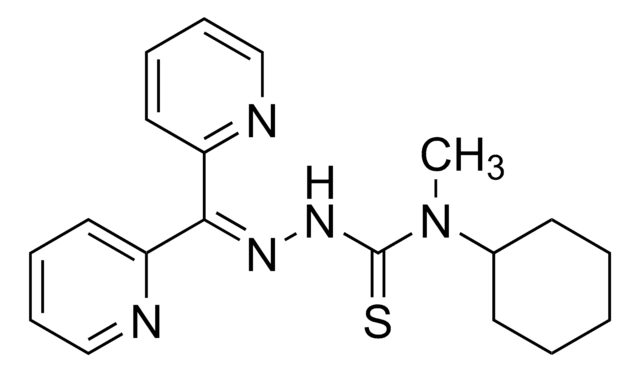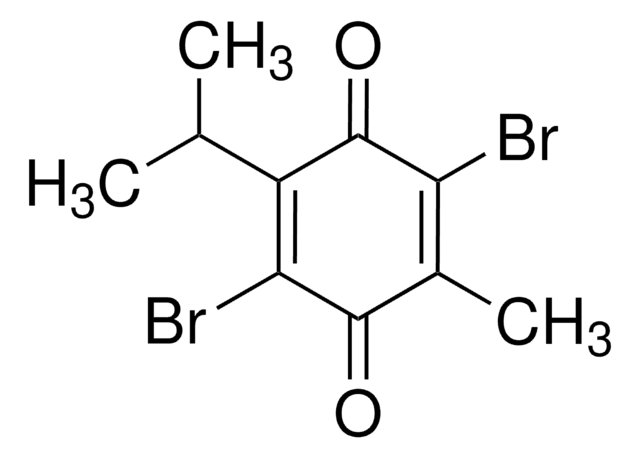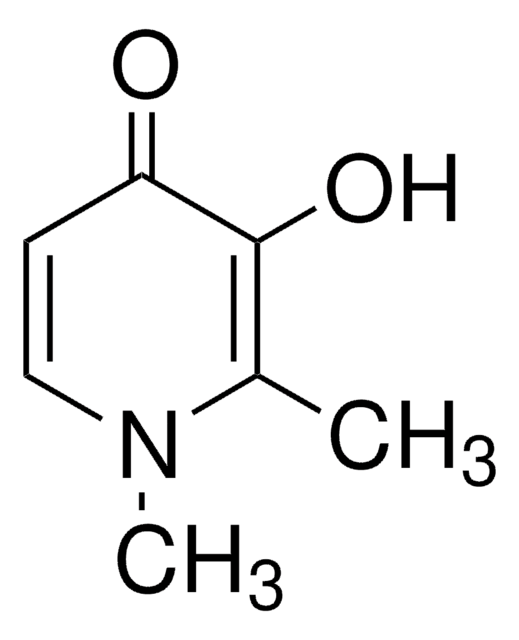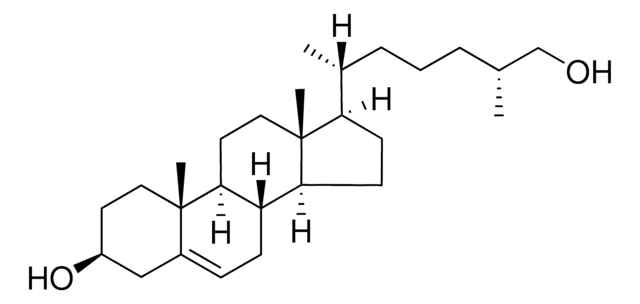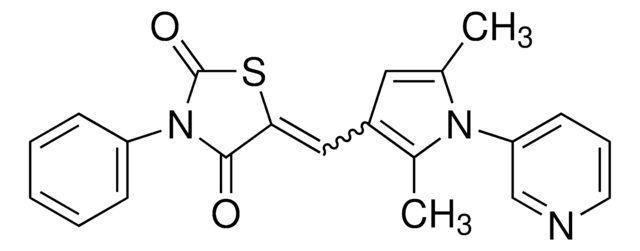SML0186
Dp44mT
≥98% (HPLC)
Synonym(s):
2-(Di-2-pyridinylmethylene)-N,N-dimethyl-hydrazinecarbothioamide, Di-2-pyridylketone-4,4,-dimethyl-3-thiosemicarbazone
About This Item
Recommended Products
Quality Level
Assay
≥98% (HPLC)
form
powder
color
yellow to orange
solubility
DMSO: ≥5 mg/mL
originator
Bayer
storage temp.
2-8°C
SMILES string
CN(C)C(=S)N\N=C(\c1ccccn1)c2ccccn2
InChI
1S/C14H15N5S/c1-19(2)14(20)18-17-13(11-7-3-5-9-15-11)12-8-4-6-10-16-12/h3-10H,1-2H3,(H,18,20)
InChI key
XOBIGRNRXCAMJQ-UHFFFAOYSA-N
Application
Biochem/physiol Actions
Features and Benefits
Caution
Signal Word
Danger
Hazard Statements
Precautionary Statements
Hazard Classifications
Acute Tox. 3 Oral
Storage Class Code
6.1C - Combustible acute toxic Cat.3 / toxic compounds or compounds which causing chronic effects
WGK
WGK 3
Flash Point(F)
Not applicable
Flash Point(C)
Not applicable
Certificates of Analysis (COA)
Search for Certificates of Analysis (COA) by entering the products Lot/Batch Number. Lot and Batch Numbers can be found on a product’s label following the words ‘Lot’ or ‘Batch’.
Already Own This Product?
Find documentation for the products that you have recently purchased in the Document Library.
Related Content
Apoptosis, or programmed cell death (PCD), is a selective process for the removal of unnecessary, infected or transformed cells in various biological systems. As it plays a role in the homeostasis of multicellular organisms, apoptosis is tightly regulated through two principal pathways by a number of regulatory and effector molecules.
n proliferating cells, the cell cycle consists of four phases. Gap 1 (G1) is the interval between mitosis and DNA replication that is characterized by cell growth. Replication of DNA occurs during the synthesis (S) phase, which is followed by a second gap phase (G2) during which growth and preparation for cell division occurs. Together, these three stages comprise the interphase phase of the cell cycle. Interphase is followed by the mitotic (M) phase.
Our team of scientists has experience in all areas of research including Life Science, Material Science, Chemical Synthesis, Chromatography, Analytical and many others.
Contact Technical Service